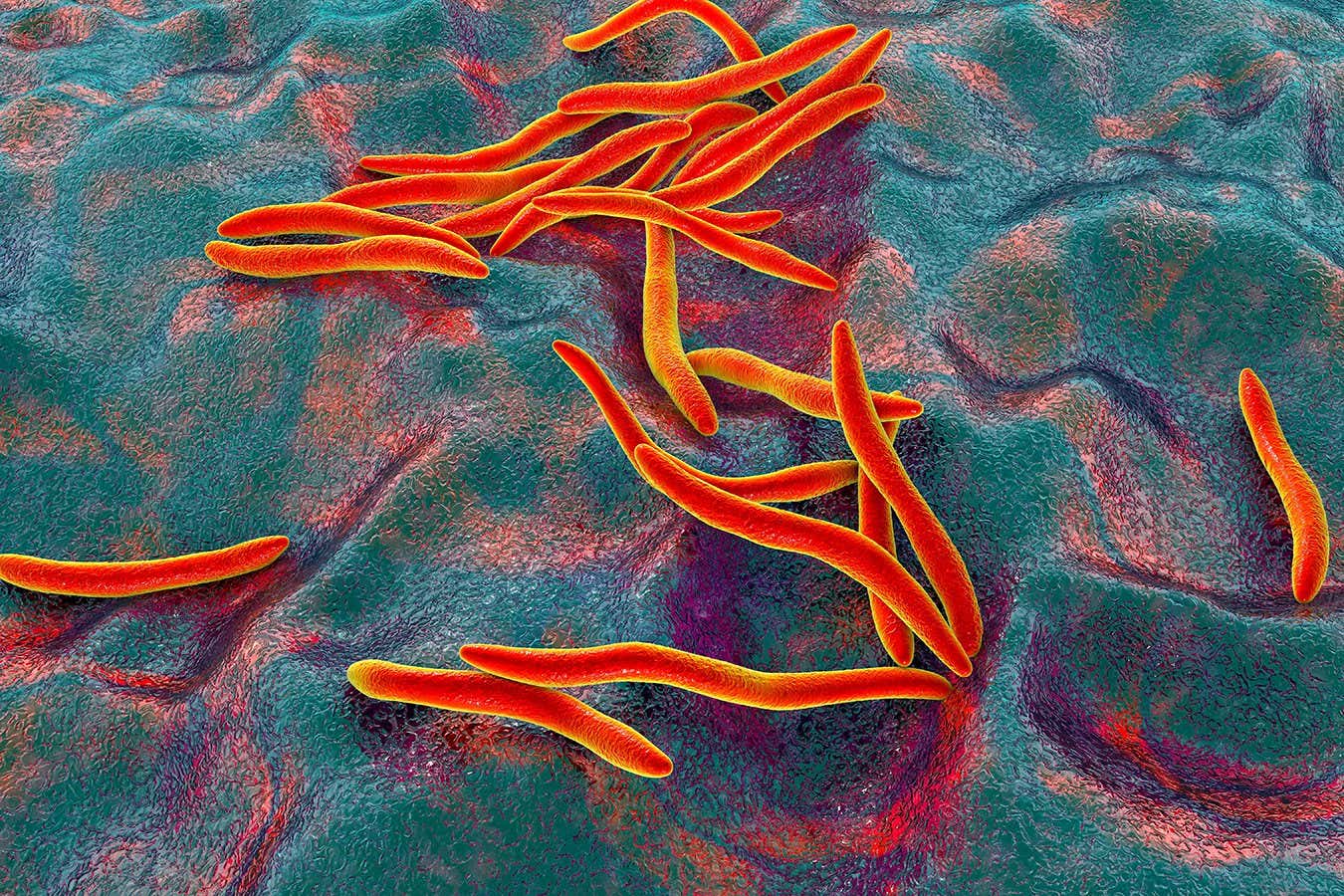Bacteria that contribute to gum disease may be a cause of the gynaecological condition endometriosis, which means it could be treated with antibiotics
By Grace Wade
14 June 2023
An illustration of fusobacterium, which may cause endometriosis
Science Photo Library/Alamy
Infections with a bacteria that contributes to gum disease may cause endometriosis, a condition in which tissues lining the uterus grow outside of it and form painful lesions. The finding suggests antibiotics could prevent or treat the condition.
Yutaka Kondo at Nagoya University in Japan and his colleagues examined endometrial tissue samples from 28 women, half of whom were diagnosed with endometriosis.
Genetic analysis of the samples revealed abnormalities in cells called fibroblasts, which form connective tissues. These fibroblasts had increased activity in 13 genes compared with those from people without the condition. One gene, TAGLN, drives production of a protein to help cells proliferate and migrate, potentially explaining why endometrial cells grow outside the uterus in endometriosis.
Advertisement
Read more:
Diabetes drug metformin may cut the risk of long covid by 41 per cent
TAGLN activity is also boosted by inflammation, which can occur due to bacterial infection. Using a fluorescent dye, the researchers searched for bacterial pathogens inside endometrial tissues collected from a separate group of 84 women, half of whom had endometriosis. They detected Fusobacterium nucleatum in 64 per cent of those with the condition versus 7 per cent of those without it.
Next, the researchers used a mouse model to understand the role F. nucleatum may play in the condition. Mice don’t menstruate, so they cannot develop endometriosis. To mimic the condition, the researchers first infected mice with F. nucleatum. Then, they collected uterine samples and injected them into the abdomens of 12 other mice. The mice received weekly hormone injections to promote the growth of lesions.
